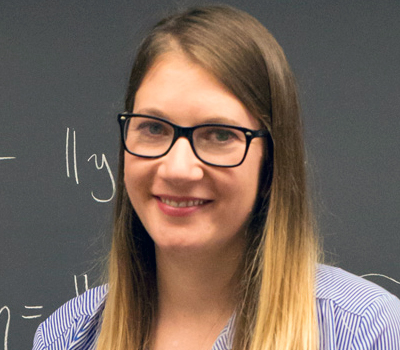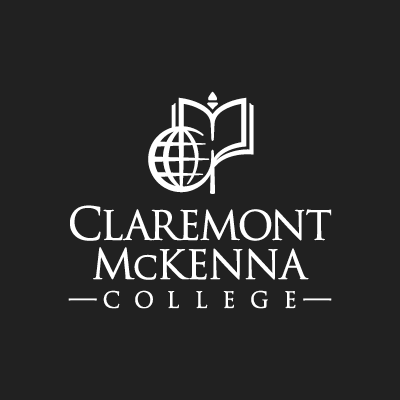Storing and recovering large streams of data efficiently and with high quality
The rapid advancement of technology has resulted in an influx of large-scale data (i.e., signals) and massive data applications. With so much information emerging out there, a system to obtain and recover signals more quickly and efficiently is desperately needed. In order to make this possible, much work has been done in Compressive Signal Processing (CSP), but there is still a disconnect between the theoretical work in CSP and the use of CSP in practical settings. Dr. Deanna Needell, a Mathematical Sciences professor of Claremont McKenna College, aims to bridge this gap by providing compressed sensing (CS) methods and analysis that apply to real-world signals and settings.
Compressed sensing is significant because it skips the process of measuring the entirety of the signal as was traditionally done in normal signal processing and acquires compression automatically. For example, instead of measuring every pixel in a picture taken by a digital camera in order to process it into a piece of data, compressed sensing would reconstruct high-resolution images from fewer samples, or pixels, taken in already compressed form. Therefore, the social implications of compressed sensing methods are many. Super-resolution, for one, is critical in many applications ranging from detecting objects in military settings to enhancing medical imaging used for diagnosis, treatment, and understanding of serious diseases. Analysis methods also have numerous applications, ranging from image and data compression to radar and sonar. Moreover, in telecommunication, the use of CS techniques leads to faster communication, less data storage, and therefore less cost and energy consumption. Adaptive sensing used in medical imaging could substantially reduce MRI acquisition time, which will decrease cost and sedation, and increase the accuracy of diagnosis as well as patient comfort (which is especially crucial in pediatric MRI). However, there have been many limitations in making compressed sensing a reality due to a lack of studies that can translate theories into real life solutions. Dr. Deanna Needell's research in CS methods is therefore vital as it can increase speed and decrease cost, resolving many large-scale data problems that science is currently struggling to keep up with.
Dr. Needell's areas of impact include:
-
"Practical CSP": Imagine you have an audio signal, a soundwave, and if you want to store that sound somewhere, you'd need to sample that soundwave. The general problem with large streams of data then arises: how often do you have to sample the soundwave in order to be able to store that and have the audio sound good? Likewise, how often do you have to sample an image in order to compress and store the image and reconstruct a high-resolution image? In order to measure those samples, researchers generally assume that we can use an infinite-precision sampling procedure. However, in the real world, everything is finite and we have finite amounts of memory, as the data capacity in computers is limited. One-bit compressed sensing is a new and exciting branch of CSP which handles extreme (and often more realistic) quantization, addressing this issue by rounding, or quantizing. A second practical issue is that the sampling procedure is typically non-adaptive; we sample the same way for each signal. Adaptive sensing would allow us to adapt the procedure "on the fly", using previous samples to decide how to take the next. This type of sampling can lead to drastic improvements in aforementioned CSP applications.
- CS is a very young field (i.e. a couple of decades), and still has a lot of potential yet to be unlocked. In addition to her ongoing research, Dr. Needell considers diversity in her field of studies very important, and strongly encourages women and minorities to participate in her research. In fact, Dr. Needell and her co-author Rachel Ward were the ones responsible for the groundbreaking shift in the male-dominated branch of signal processing where they implemented the use of a more neutral "Fabio" photo (with copyright permission from the famous Fabio Lanzoni himself, of course) as the standard test image in image processing in place of the sultry, snicker-inducing "Lena" image. This past summer, all of her REU (Research Experiences for Undergraduates) students volunteered for a local charity whose focus is helping underrepresented populations enroll in college. Currently, she collaborates with many other researchers, like faculty from University of British Columbia, Rice, Georgia Tech, UCLA, Cal Tech, Stanford, UT Austin, and Duke, in computer science, math, and electrical engineering departments. Locally, she has three graduate students (two women and one man) and three undergraduates working with her (two women and one man).
Bio
Dr. Deanna Needell is trained in pure mathematics and has always loved the beauty and purity of the subject. In grad school, her adviser introduced her to a problem in applied mathematics that used a lot of pure mathematical tools. She was immediately hooked, as she gets a lot of satisfaction from being able to use math to impact the world. The field that Dr. Needell works in is called compressed sensing and it has applications ranging from medical imaging (e.g. MRI, CT) to radar and geophysics. She loves that she can work on proving mathematical theorems yet still see the impact of her work in the real world. For example, compressed sensing MRI is being tested in medical facilities and the results are exciting. For instance, one can use these mathematical tools to reduce the scan time of an MRI from about 45 minutes to about eight minutes. This is extremely important especially in pediatric MRI where it is very difficult to get clear images over such a long time period.
Aside from being an avid swimmer, Dr. Needell collects Starbucks mugs from the many different places she has traveled. You can see the full list of her collections on her website.
Website: http://www.cmc.edu/pages/faculty/DNeedell/
In the News
Claremont McKenna College
The Kitware Blog
The New York Times
Nuit-Blanche
Claremont McKenna College
Publications
Awards
NSF Career Award #1348721, 2014
Alfred P. Sloan Research Fellowship, 2014
ICERM Research Fellowship, 2014
University of Nevada Alumni of the Year Award, 2014
ACHA Top 1 Hottest Article, 2013
CoSaMP: Iterative signal recovery from incomplete and inaccurate samples


